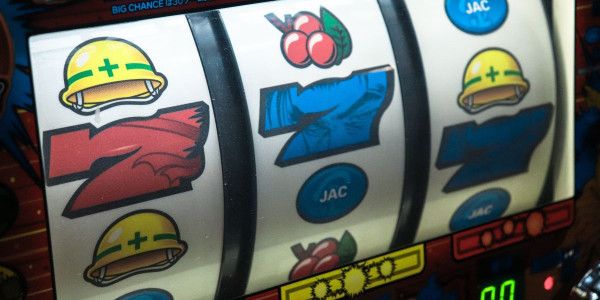Introduction
As a melting pot of entertainment, glamour and thrill, casinos have long fascinated people from all walks of life. This fascination has given rise to a kaleidoscope of casino cultures around the world, each as unique and enticing as the other. From the neon-lit extravaganza of Las Vegas to the understated opulence of Macau; from the historic grandeur of Monte Carlo to the tropical allure of the Caribbean, the world’s casino cultures are as diverse as they are captivating. This blog post will uncover the myriad hues of these casino cultures, providing an in-depth look at the gaming styles, casino etiquettes, architecture and design, and unique features of some of the world’s most popular casino destinations.

Firstly, we'll delve into the distinctive gaming styles found across different cultures. The glitz and glamour of Las Vegas casinos are synonymous with high-stakes poker and slot machines, while the Macau casino scene leans towards the strategic nuances of baccarat. The differences in style and game popularity reflect not just regional preferences, but also the historical and socio-economic contexts of these casino havens.
Equally fascinating is the realm of casino etiquettes, which vary dramatically from one destination to another. The boisterous, celebratory atmosphere of Las Vegas contrasts starkly with the more reserved and formal air of Macau. Understanding these regional differences in casino behavior will not only enhance your gaming experience but also help you blend seamlessly into the local culture.
Next, we will examine the distinctive architecture and design of these casinos, which often mirror the cultural and historical ethos of their respective locations. The extravagant displays of Las Vegas casinos, for instance, reflect the city’s spirit of revelry and risk-taking, while the design of Macau’s casinos emphasizes traditional Chinese influences fused with modern aesthetics.
This overview of Las Vegas will set the stage for a detailed exploration of its casino culture, from its reign as the world’s most popular casino destination to the diverse array of casinos it hosts. We'll then embark on a journey across the globe to Monaco's Monte Carlo, home to some of the world's oldest and most prestigious casinos.
Our journey will continue through the emerging casino cultures of Singapore and the Caribbean, the timeless charm of Atlantic City, and the rapidly growing Australian casino scene. By the end of this exploration, you will have gleaned a rich understanding of the world's casino cultures, and hopefully, be inspired to experience them firsthand. So, let's get started and step into the vibrant world of global casino cultures.
Gambling and Casino Culture Explained
What is Gambling Culture?
Gambling culture, also known as casino culture, refers to the societal norms, attitudes, and practices surrounding the act of gambling. It is a complex concept that varies greatly across different societies and communities. At its core, gambling involves the staking or betting of something of value, with an awareness of risk and hope of gain, on the outcome of a game, contest, or uncertain event. The result may be determined by chance, accident, or even a bettor's miscalculation.

There are various forms of gambling, including commercial gambling which encompasses lotteries, sports betting, casino games, and more. However, it's important to note that not all betting activities are considered gambling. For instance, if there's no chance of winning something of value, the activity doesn't qualify as gambling.
The cultural perspective on gambling can vary significantly. In some cultures, gambling is viewed as a form of individual entertainment, a social activity, or even a quick way to make money. In others, it might be seen as something shameful or problematic. The cultural factors influencing gambling can include beliefs and values of a cultural group, culturally determined help-seeking behaviors, and the process of acculturation.
Historically, gambling dates back to the Paleolithic period, before written history, with the earliest six-sided dice dating back to about 3000 BCE in Mesopotamia. Over time, gambling has evolved from a pastime into an international phenomenon seen around the world. Today, technology has further influenced gambling by increasing convenience for mobile customers, making gambling accessible at all times.
In terms of cultural prevalence, countries like Singapore, Finland, Australia, Ireland, the United Kingdom, and the United States have high percentages of their populations regularly participating in gambling activities. However, the impact of culture on gambling is not limited to participation rates. Culture also influences how people gamble, the popularity of different types of gambling, and specific gambling practices.
In conclusion, gambling culture is a multifaceted concept that encompasses the societal attitudes, norms, and practices related to gambling. It is shaped by a variety of factors, including historical context, technological advancements, and cultural beliefs and values.
How Does Culture Affect Gambling?
Culture plays a significant role in shaping attitudes and behaviors, including those related to gambling. It is the sum of learned behaviors, beliefs, and values shared by a group of people, passed down from generation to generation. This collective programming of the mind differentiates one group from another and influences how individuals perceive and interact with their environment.
In the context of gambling, culture can influence how it is perceived and practiced within a society. The functions and meanings of gambling can vary both within and across cultures. For some, it may be seen as a form of personal entertainment or a social activity, while for others, it could be viewed as an escape from daily life, a hobby requiring skill, or a way to test one's luck. In certain cultures, gambling might even be seen as a quick way to make money or, conversely, as something shameful.

Cultural values and beliefs can also affect attitudes towards gambling. For instance, in cultures where great value is placed on the possession and display of wealth, individuals may be more attracted to the world of gambling, where large sums of money rapidly change hands. Conversely, cultures that discourage such displays of wealth may see lower levels of participation in gambling activities.
Moreover, cultural norms and expectations can guide, inform, or influence the behavior of people in a certain culture or social group, including their gambling habits. For example, in cultures where gambling is widely accepted, individuals may be more likely to engage in it. Australians, for instance, are reported to be the world's biggest gamblers.
However, it's important to note that while culture can influence gambling behaviors, it doesn't determine them. Individual choices, personal circumstances, and other factors also play a crucial role. Therefore, understanding the cultural perspective on gambling can provide valuable insights but should not be used to stereotype or stigmatize individuals or groups.
Is Gambling Part of Culture?
Gambling is indeed a part of many cultures around the world. For instance, Australians are reported to be the world's biggest gamblers. In China, gambling is cherished as a social activity, especially during Chinese New Year where card games are popular. Culture influences how people gamble, the popularity of different types of gambling, and specific gambling practices. It also impacts individuals' thoughts and attitudes towards gambling.
Gambling, a practice as old as humanity itself, has been an integral part of many cultures across the globe. From ancient civilizations to modern societies, gambling has been viewed through various lenses, often influenced by cultural beliefs and values.
What Types of People Go To Casinos?
Casinos attract a diverse range of individuals, each with their unique motivations and cultural perspectives. The types of people who frequent casinos can be broadly categorized into two main groups: grind and premium customers. Grind players are those who bet in small amounts, slowly accumulating their winnings through a series of minor bets. On the other hand, premium customers are those who place larger bets and are often seen as high rollers in the casino environment.

However, the spectrum of casino-goers extends beyond these two categories. There are young and upbeat salary earners who see gambling as a form of entertainment, first-timers who are trying their luck, elderly individuals who enjoy slot machines, and those who wager and lose their hard-earned money. Additionally, there are curious players exploring the casino environment, bartenders and waitresses who work in the establishment, and the cool, knowledgeable high rollers who are well-versed in the art of gambling.
The cultural aspects of gambling play a significant role in shaping the types of people who visit casinos. Culture, being a shared set of beliefs and values, influences how people perceive and engage in gambling. In some cultures, gambling is viewed as a form of individual entertainment or a social activity, providing an escape from daily life. For others, it's seen as a hobby requiring skill, a way to test one's luck, or a quick way to make money. However, in certain cultures, gambling is considered shameful, which can deter individuals from participating.
Cultural perspectives on gambling can also influence the risk of compulsive gambling. People with certain personality traits, such as being highly competitive, workaholic, impulsive, restless, or easily bored, may be more prone to compulsive gambling. Furthermore, cultural norms and values can impact the popularity of different types of gambling and specific gambling practices.
For instance, in cultures where wealth possession and display are highly valued, individuals might be drawn to the world of gambling, where large sums of money rapidly change hands. Conversely, in cultures where gambling is considered shameful, individuals may hesitate to discuss or seek help for gambling problems.
In conclusion, the types of people who love casinos are influenced by a variety of factors, including their personal motivations and cultural backgrounds. Understanding these factors can provide valuable insights into the diverse range of individuals who engage in casino gambling.
How Casino Culture Has Changed Over The Decades
Casino culture has undergone significant transformations over the centuries, evolving from a pastime activity into an international phenomenon. The first known casino was established in Italy around 1600, and by the 1800s, gambling houses had become more common in Europe and the United States. The first slot machine was invented around 1850, marking a significant milestone in the history of casinos.

In the early 20th century, gambling was outlawed in the US due to state legislation. However, in 1931, Nevada legalized gambling, leading to the establishment of the first legalized casinos in the US. By 1976, New Jersey had also legalized gambling in Atlantic City, which is now the second-largest gambling city in the US.
The advent of technology has significantly influenced the evolution of casino culture. Over the past decade, technological advancements have revolutionized the casino industry, offering players personalized experiences, numerous bonuses and promotions, and a variety of gaming options. Live gaming technology allows gamers to track gameplay as it happens, enhancing their gaming experience.
Online casinos use advanced encryption technology to protect players' personal and financial information, making it unreadable to hackers or other third parties. Some casinos even use AI to streamline user experience, analyzing player activity to tailor experiences and suggest games that align with their tastes.
The future of the casino industry is being shaped by several emerging trends, including the rise of online and mobile gaming, adoption of cutting-edge technologies like VR, AR, and AI, as well as the increasing use of cryptocurrencies and blockchain. As of March 2023, the in-person gambling participation rate remained statistically stable at 27 percent, while the online gambling participation rate remained statistically stable at 26 percent.
Casino culture has also evolved to include more dynamic and charismatic live dealers for games such as Blackjack and Baccarat, keeping players entertained and engaged. Furthermore, casinos are increasingly focusing on providing a richer, all-encompassing experience, incorporating dining and entertainment into their offerings to attract and retain customers.
In conclusion, casino culture has changed tremendously over the decades, adapting to societal changes, technological advancements, and shifting consumer preferences. From ancient dice-throwing competitions in Egypt to modern card games like blackjack and poker, gamblers have come up with ever more creative ways to test their fate and luck.
What are some cultural faux pas in casinos?
Casino culture, like any other social setting, has its own set of etiquette and rules that are expected to be followed. Violating these norms can lead to what is known as a cultural faux pas, an embarrassing social blunder or indiscretion. In the context of casinos, there are several potential faux pas that one should be aware of to avoid causing offense or embarrassment.

One common faux pas in casinos is inappropriate attire. Casinos often have specific dress codes, especially during the evening hours. For instance, wearing dirty, damaged, or torn clothing is generally frowned upon. Men are typically expected to wear collared or button-down shirts, while women should opt for blouses and other formal attire. After sundown, it's best to avoid wearing shorts and t-shirts. Wearing flip-flops or sneakers is also considered a faux pas in most land-based casinos.
Another faux pas is using offensive clothing. This could include clothing with explicit language, controversial symbols, or anything else that might offend other patrons or staff. Similarly, wearing leisure wear instead of casual wear, or evening attire during the day, can also be seen as a faux pas.
In addition to attire, behavior can also lead to a faux pas in a casino. For example, talking over people, eating with your hands, or playing with your silverware at a formal dinner party in a casino could be considered bad manners. Insults, particularly those made publicly and without provocation, are also generally considered a faux pas.
Using a fake ID to enter a casino is not only a faux pas but also illegal. If caught, you risk criminal charges, heavy fines, and even jail time. Moreover, if you win a jackpot while using a fake ID, you will be subject to an ID check and will not be able to take home your winnings.
Finally, it's worth noting that cultural beliefs and values can influence not only gambling behaviors but also help-seeking behaviors. Therefore, understanding and respecting the cultural perspectives on gambling can help avoid potential faux pas related to cultural insensitivity.
In conclusion, while casinos have become more accessible and casual over the years, certain etiquette rules still apply. Being aware of these cultural faux pas can help ensure a pleasant and respectful casino experience for everyone involved.
The connection between Casino Culture, Women, and Glamor
Casino culture, women, and glamour are interconnected in a complex web that has evolved over time. Historically, casinos were male-dominated spaces where women were often objectified to attract male customers. Women were expected to adhere to dress codes that emphasized glamour and allure, often serving as hostesses or "eye candy" to entertain guests. This role of women in promoting glamour in casinos contributed significantly to the overall ambiance and appeal of these establishments.

However, this portrayal of women in casino culture has been criticized for perpetuating harmful gender stereotypes and contributing to gender inequality. Despite these challenges, women have made significant strides in the casino industry, both as players and leaders. They have influenced game selection, set new trends in design, and challenged traditional notions about gender roles within the space. They even inspired the fashion world.
The glamor associated with casino culture is often depicted in popular culture, with casinos portrayed as places of luxury and high-stakes gambling. This glamorization can contribute to the appeal of casinos, but it also has a darker side, particularly when it comes to the treatment of women.
In recent years, there has been a shift towards more equal treatment of female gamblers, with online casinos leading the way in accommodating all genders equally. However, much work remains to be done to achieve full equality between genders within gambling settings.
In conclusion, the connection between casino culture, women, and glamour is multifaceted and evolving. While women have historically been objectified in casino culture, they have also played a significant role in shaping and influencing the industry. The glamor associated with casinos adds to their appeal, but it also raises important questions about gender equality and representation.
Why is Gambling So Popular in Asian and Chinese Culture?
Gambling has been deeply ingrained in Asian and particularly Chinese culture for thousands of years. The roots of this practice can be traced back to ancient China, where games of chance were played as early as 3000 BC. Over the centuries, despite various attempts by dynasties to ban it, gambling persisted among people from all walks of life, including emperors, government officials, and ordinary citizens.

The popularity of gambling in these cultures is often attributed to cultural conceptions of luck, fate, and chance. Many Asians, especially those of Chinese descent, are firm believers in the mystical attributes of these elements in people's lives. This belief system, coupled with the social aspect of playing games of chance, has led to the widespread acceptance and practice of gambling in these communities.
In modern times, this gambling culture has been carried over by Asian immigrants to other parts of the world, such as the United States. Here, they continue to engage in games of chance as a means of socializing and making money. In fact, gambling is considered an acceptable form of social activity within these communities, often taking place during festive seasons, birthday gatherings, or wedding celebrations.
However, it's important to note that while cultural beliefs play a significant role in the prevalence of gambling among Asians, focusing solely on these factors can overshadow other root causes of problem gambling within these communities. For instance, the transition from poverty to prosperity, the widening gap between the poor and rich, and the hunger for achievement can all contribute to why some individuals take excessive monetary risks when they gamble.
Furthermore, the illusion of control, a characteristic often associated with Chinese gamblers, may also influence their gambling behavior. Many Chinese gamblers believe they can control the outcome of gambling events, a belief that is often reinforced by superstitions about lucky objects, feng shui, and numbers.
Despite the potential negative consequences of excessive gambling, it remains a crucial part of Chinese life, deeply rooted in history and cultural aspects. From the ancient board games mentioned as far back as 2100 BC to the modern-day casinos in Macau, the world's biggest gaming city, gambling continues to be a significant aspect of Chinese culture.
Gaming Styles in Different Casino Cultures
Casino culture is a fascinating blend of tradition, innovation, and excitement that varies greatly from one region to another. This diversity is reflected not only in the types of games played but also in the unique gaming styles adopted by players worldwide. Let's embark on a whirlwind tour exploring these diverse gaming styles across various casino cultures.

Starting with the United States, slot machines dominate the American gambling landscape. These colorful machines with spinning reels offer a wide range of themes and jackpot possibilities, attracting a diverse crowd of players. The gaming style here is often characterized by the thrill of chance and the allure of potential big wins.
In contrast, the Chinese territory of Macau has a distinct preference for table games, particularly Baccarat. The gaming style here leans towards superstition and ritual, with many locals believing in lucky charms and specific rituals while playing. Similarly, Mahjong, a traditional Chinese tile-based game, is popular in China, where it's viewed as both a social activity and a form of gambling.
Moving to Europe, the United Kingdom presents a diverse gambling scene with a mix of classic and modern gaming styles. From the elegance of high-stakes poker games to the fast-paced excitement of roulette, UK casinos offer something for everyone.
In India’s coastal state of Goa, floating casinos offer a unique gaming experience. Here, the gaming style is more relaxed and leisurely, with players enjoying a variety of games amidst the serene backdrop of the Arabian Sea.
The Nordic countries, including Sweden, Norway, Finland, and Denmark, have embraced online gambling. The gaming style here is characterized by convenience and accessibility, with players enjoying a wide range of options from the comfort of their homes.
Lastly, let's not forget about the unique gaming styles found in the world of online casinos. From adrenaline-fueled high stakes games to analytical approaches that require skill and strategy, online casinos cater to a wide range of gaming styles. Whether you're a casual player looking for some fun or a wannabe pro aiming for the big leagues, there's an online casino game that fits your style.
In conclusion, the world of casinos is as diverse as it is exciting. From the spinning reels of slot machines to the strategic gameplay of poker, each region has its unique gaming style that adds to the rich tapestry of global casino culture. So, whether you're a seasoned gambler or a curious newcomer, there's a world of gaming styles waiting for you to explore.
Casino Etiquette: A Crucial Aspect of Casino Culture
Casino culture is a fascinating blend of tradition, excitement, and social interaction. It varies from country to country, reflecting the unique customs and norms of each region. However, one aspect that remains consistent across all casino cultures is the importance of etiquette. Understanding and adhering to casino etiquette not only enhances your gaming experience but also ensures a harmonious environment for all players.

Casino etiquette refers to the unwritten rules and expected behaviors within a casino setting. These guidelines are designed to maintain order, respect, and fairness among players, dealers, and staff. While some rules may seem obvious, such as not cheating or respecting others' personal space, others might be less apparent, especially for first-time visitors.
One fundamental rule of casino etiquette is to avoid seeking advice from the dealer. This practice can place the dealer in an uncomfortable position, as their advice does not guarantee a win. If you lose following their suggestion, it could lead to an awkward situation. Therefore, it's best to make your own decisions and accept the outcomes.
Another crucial aspect of casino etiquette involves handling losses. It's essential to avoid chasing your losses by taking cash advances or loans to continue gambling. This behavior not only disrupts your financial stability but also creates an unpleasant atmosphere for other players.
Moreover, excessive drinking is frowned upon in casinos. Overindulging in alcohol can lead to careless spills on the table, disrupting the game and causing inconvenience to others. Furthermore, intoxication can impair your judgment, leading to poor gaming decisions and potential conflicts with other players or staff.
In terms of casino attire, dressing appropriately is part of casino etiquette. While some casinos have relaxed dress codes, others, particularly those on cruise ships or in certain countries, may enforce stricter dress codes. It's always better to be overdressed than underdressed when visiting a casino.
Cell phone usage is another area where etiquette comes into play. Most casinos discourage having your phone out at the table, and filming while playing slots is often prohibited. This rule stems from security concerns and respect for other players' privacy.
Lastly, tipping is a significant part of casino etiquette, especially in American casinos. Front-of-house staff like dealers and beverage servers often rely on tips as part of their income. Therefore, showing appreciation for their service through gratuities is both respectful and supportive.
In conclusion, understanding and practicing casino etiquette is an integral part of the casino culture. It fosters a respectful and enjoyable environment for everyone, enhancing the overall casino experience. Whether you're a seasoned player or a novice, adhering to these unwritten rules will ensure you're always welcome at the gaming table.
Architecture and Design in Casino Cultures
The architecture and design of casinos play a crucial role in creating an immersive and engaging environment for visitors. It's not just about building a physical structure where people can gamble; it's about creating a space that reflects the culture and values of the society it's part of. The influence of local culture on casino design is evident in different parts of the world.

In the United States, casinos are often designed with a focus on luxury and grandeur. The casino floors are filled with slot machines, reflecting the American preference for these games. The design elements often include luxurious decor, such as fountains, sculptures, and floral arrangements, creating an atmosphere of opulence and extravagance.
Indian casinos, on the other hand, are typically located on tribal lands and can be quite large due to the availability of space. The design of these casinos is influenced by Indian culture and traditions, with a focus on creating a comfortable and welcoming environment for visitors. The layout of these casinos often includes large gaming areas with numerous tables for various games.
In Macau, the world's largest gambling hub, the design of casinos is heavily influenced by the local obsession with Baccarat. This simple card game is incredibly popular in Macau, making up more than 88 percent of the region's total gambling revenue. As such, the layout of Macau's casinos is often centered around Baccarat tables, with the design elements reflecting the game's elegance and simplicity.
In Goa, India, the unique concept of floating casinos offers a different kind of gambling experience. These offshore vessels house casinos that offer various games, with the design and layout of these casinos being influenced by their unique location. The interiors of these floating casinos are often luxurious and opulent, with a focus on providing a high-end gambling experience.
In the United Kingdom, casinos are typically more subdued, reflecting the cultural preference for a calm and relaxing atmosphere. The design of UK casinos often includes live music and bands, but the overall ambiance is more relaxed compared to the flashy and extravagant American casinos.
In conclusion, the architecture and design of casinos around the world reflect the unique cultural preferences and gambling habits of each region. From the extravagant American casinos to the elegant Macau casinos and the unique floating casinos of Goa, the design and layout of these establishments play a crucial role in shaping the gambling experience.
Casino Cultures Compared
Las Vegas Casino Culture: A Neon-Lit Legacy
Las Vegas, the city of lights and glitter, is renowned for its vibrant casino culture that has evolved over the decades. The city's cultural life is deeply intertwined with its casinos and hotels, which are architectural masterpieces lining the dazzling Las Vegas Boulevard. This culture dates back to 1931 when the construction of the Hoover Dam brought an influx of workers into the city, leading to the legalization of gambling. This pivotal moment forever changed the city's future, transforming it into a prosperous hub of entertainment and tourism.

The first casino in Las Vegas was adorned with neon signs, a feature that has since become synonymous with the city's culture. These bright, colorful signs highlight the various attractions, contributing to the city's reputation for glamour and excitement. Over time, the casino culture has been perceived as one for the upper class, attracting individuals with a penchant for high stakes and luxury.
Las Vegas casinos have undergone significant architectural changes over the years. Until the late 1980s, they favored low ceilings and dark spaces, creating an environment where the difference between day and night was indiscernible, encouraging patrons to stay longer. However, this trend shifted with the construction of complexes like the Mirage and Mandalay Bay in the late '80s and '90s. These establishments favored huge atria and vaulted ceilings, sometimes with glass roofs that allowed daylight to enter, adding to their allure.
Inside these resorts and casinos, you can find treasures beyond the gaming tables. For instance, the Bellagio, which opened in 1998, houses a magnificent collection of paintings by masters such as Vincent van Gogh and Pablo Picasso. The Mandalay Bay Resort and Casino boasts a 12,000-seat sports-and-entertainment complex, inaugurated by Italian opera tenor Luciano Pavarotti.
Interestingly, the city's casino culture extends beyond the traditional gaming establishments. Native American tribes, recognized as sovereign entities, have the right to open their casino operations on their lands, even within states where it is explicitly banned. This unique aspect adds another layer to the diverse casino culture of Las Vegas.
In addition to the gaming aspect, Las Vegas casinos are also known for their spectacular shows and fine dining options, further enhancing the city's nightlife. From stand-up comedy acts to lavish productions featuring dozens of dancers, the range of shows offered is vast, attracting visitors from around the globe.
Despite being a modern city, Las Vegas has shown increasing interest in preserving its historic architecture. Several buildings, including the Las Vegas Mormon Fort and the Little Church of the West, have been placed on the National Register of Historic Places, serving as reminders of the city's rich history.
In conclusion, Las Vegas' casino culture is a blend of history, glamour, and architectural grandeur. It's a culture that continues to evolve, offering visitors a unique experience filled with excitement, entertainment, and a touch of luxury. Whether you're a high roller or just there for the spectacle, Las Vegas' casino culture is sure to leave a lasting impression.
Monte Carlo Casino Culture: A Blend of Luxury and Tradition
The Casino de Monte-Carlo, nestled in the heart of Monaco, is a symbol of opulence and grandeur. This iconic establishment, with its Belle Époque architecture, has become a global reference for gaming and entertainment. Its allure extends far beyond Europe, attracting visitors from around the world.

The casino's rich cultural heritage is a significant draw. Since its inception, it has played host to royalty, global dignitaries, and celebrities. Its breathtaking design has not only inspired other casinos but has also served as a popular backdrop for films and music videos. The image of James Bond, the fictional British spy, is often associated with this famous gambling house, further enhancing its allure.
The Casino de Monte-Carlo offers an exceptional selection of games including French Roulette, Baccarat, Black Jack, Craps, and Poker Texas Hold'em Ultimate. However, the appeal of this casino extends beyond its gaming offerings. The opulent rooms, each designed by different architects, feature grand chandeliers, intricate 19th-century bas-reliefs, and landscape paintings that run the width of the walls. These elements contribute to the casino's unique atmosphere, making it a must-visit destination for both casual fans and seasoned pros.
Interestingly, locals are not allowed to gamble at the casino. This rule was implemented by the principality's rulers to prevent citizens from squandering their wealth, thereby ensuring that the money brought into the country through gambling would be used for the nation's development. This strategy proved so successful that Monaco was able to abolish taxes due to the sustainability of their gambling industry.
Monaco's culture, heavily influenced by its neighbors France, Italy, and Spain, is reflected in the casino's operations. The Monegasque population, which makes up about 21 percent of the total population, coexists with a large French community, which constitutes 28 percent of the population. This multicultural blend adds a unique flavor to the casino culture.
The Casino de Monte-Carlo is more than just a gambling hub; it's a testament to Monaco's history and its commitment to preserving its unique identity while embracing modernity. It stands as a beacon of wealth, fun, and sophistication, embodying the spirit of Monte-Carlo. Whether you're a high roller or simply a lover of beautiful architecture and rich history, the Casino de Monte-Carlo promises an unforgettable experience.
Singapore Casino Culture: Modernity meets Tradition
Singapore, a city-state known for its modernity and efficient infrastructure, has been making waves in the global gambling scene. Despite not being as renowned as Vegas or Monte Carlo, Singapore's casino culture is a unique blend of tradition and innovation that cannot be ignored.

The first casino in Singapore was built in 2006, marking the beginning of a new era in the country's entertainment industry. The government-run Singapore Pools for lotteries and the Singapore Turf Club for horse racing were the primary legal gambling operations before this. However, the decision to develop two casinos, along with associated hotels and malls in Marina South and Sentosa, signaled a significant shift in the nation's approach to gambling.
Today, Singapore's casino industry accounts for 1.5% of the global market size and 4% of the Asia-Pacific market size. This growth is partly due to the appeal gambling holds for retirees, given the high life expectancy in Singapore. Jackpot rooms provide a comfortable space for elderly Singaporeans to spend their leisure time.
But it's not just the locals who are drawn to the allure of Singapore's casinos. The city-state has been actively working on attracting tourists by developing new attractions, including two major casinos, a Universal Studios theme park, and a Ferris wheel. These artificial tourist creations have proven successful in pulling crowds, especially given the propensity for Chinese tourists to gamble.
However, the rise of the casino culture in Singapore has not been without controversy. Thousands of Singaporeans signed a petition objecting to the casinos, citing fears about the social impact and risk of crime. Critics argue that casinos attract a niche market - gamblers, rather than tourists seeking cultural experiences.
Despite these concerns, Singapore continues to bet on casinos and other imported entertainment to boost its tourism industry. The gambling economy in Singapore is projected to experience significant growth in the coming years, according to predictions by Morgan Stanley. The financial institution anticipates that Singapore's Gross Gaming Revenue (GGR) could reach US$4.4 billion in 2023 and further increase to US$5.2 billion in 2024. This forecasted growth is expected to surpass the previous peak of US$4.6 billion recorded in 2018.
In conclusion, Singapore's casino culture is a fascinating mix of modern entertainment and traditional gambling practices. It's a testament to the city-state's adaptability and willingness to embrace change while providing a unique experience for both locals and tourists alike. Whether you're a seasoned gambler or a curious traveler, Singapore's casinos offer an intriguing glimpse into a vibrant and evolving aspect of its culture.
Caribbean Casino Culture: Leisure and Thrill
The Caribbean, known for its pristine beaches, crystal-clear waters, and vibrant culture, has over the years evolved into a hub for casino enthusiasts. The intersection of casino entertainment and tourism has transformed this region into a haven for beach lovers and thrill-seekers alike.

Casino resorts in the Caribbean offer a unique blend of relaxation and excitement, drawing in travelers with diverse interests. These resorts provide a one-stop destination where visitors can enjoy luxurious accommodations, fine dining, entertainment shows, and of course, the thrill of casino gaming. Whether it’s blackjack, roulette, or slot machines, these casinos offer a range of options to cater to different preferences.
The Dominican Republic, for instance, is renowned for its swanky resorts, world-class golf courses, and picture-perfect beaches, and is home to over 120 casinos. The Bahamas Atlantis Paradise Island Resort & Casino, on the other hand, is the largest casino in the Caribbean region, offering non-stop thrills at 119 live tables offering 18 different games.
The allure of these casino resorts extends beyond gaming. From spa treatments and wellness programs to themed parties and live entertainment, these resorts curate an immersive experience for their guests. This creates a well-rounded getaway where visitors can unwind by the pool, indulge in culinary delights, and enjoy vibrant nightlife, all under one roof.
However, while casino resorts bring numerous benefits, they also present challenges, such as responsible gambling concerns and potential societal impacts. Local regulations and collaboration with responsible gambling organizations are essential to ensure that gaming remains a form of entertainment without detrimental consequences.
In conclusion, the Caribbean casino culture offers a unique blend of leisure and thrill, making it a must-visit destination for casino enthusiasts around the world. As these resorts continue to flourish, finding a harmonious balance between entertainment and responsible gambling practices remains crucial to sustain the positive impact on local communities and maintaining the allure of the Caribbean as a multifaceted travel destination.
Atlantic City Casino Culture: East Coast's Gambling Hub
Atlantic City, a seaside city in New Jersey, is renowned for its vibrant casino culture. This reputation dates back to 1976 when New Jersey voters legalized casino gambling exclusively within the city limits. The first casino, Resorts International, opened its doors on May 26, 1978, marking the beginning of a new era for Atlantic City.

The city's casino scene has grown exponentially since then, with numerous casinos such as Borgata Hotel Casino & Spa, Caesars at Atlantic City, Golden Nugget Atlantic City, and Hard Rock Atlantic City, among others, offering a wide range of gaming options. These establishments have become a significant draw for visitors, contributing to Atlantic City's status as one of the most popular tourist destinations in the United States.
Atlantic City's casinos are not just about gambling; they also contribute significantly to the local economy. The state imposes an 8 percent tax on casino gross revenues, which funds programs that provide resources and services to disabled and senior citizens. Additionally, casinos are required to invest 1.25 percent of their gaming revenues into projects approved by the Casino Reinvestment Development Authority (CRDA), further stimulating economic growth.
The city's casino culture extends beyond the gaming tables and slot machines. Many of these establishments offer top-notch accommodations, dining options, and entertainment venues, creating a comprehensive resort experience. For instance, the Borgata is known for its luxurious rooms and high-quality service, while the Tropicana offers a unique Havana-themed resort experience.
Moreover, the Hard Rock Hotel & Casino stands as an iconic symbol on the Atlantic City boardwalk scene, offering upscale accommodations and a large casino with a wide variety of machines. Similarly, the Ocean Casino Resort is recognized for its luxurious accommodations and amenities, including the TopGolf Swing Suite, a social club offering golfing and other gaming options.
Atlantic City's casino culture is deeply intertwined with its history and identity. From being the site of the world's first Boardwalk to inspiring the properties on the classic game Monopoly, the city has a rich heritage that continues to evolve. Today, Atlantic City remains the seaside gaming and resort capital of the East Coast, hosting over 27 million visitors a year and offering an unforgettable experience for all who visit.
Australia Casino Culture: Lotteries and Sports Betting
Australia, known for its vibrant landscapes and diverse wildlife, also boasts a thriving casino culture that is deeply ingrained in its societal fabric. Gambling is not just a pastime here; it's a socially accepted behavior that contributes significantly to the country's economy. With over $287 million spent annually on advertising, the gambling industry has successfully positioned itself as an integral part of Australian life.

The popularity of gambling in Australia isn't rooted in history but rather in strategic marketing and the substantial revenue it generates for governments. The hotel industry, casinos, sports betting platforms, and especially poker machines, contribute to this high rate of gambling. In fact, the government derives more than seven billion dollars of revenue per year from these activities.
Casino culture in Australia is alive and well, albeit on a smaller scale compared to some other countries. Dozens of gambling venues are scattered throughout the nation, offering Australians a chance to enjoy a flutter on the pokies or a game of blackjack. One unique aspect of the Australian casino culture is its focus on pokies, or slot machines. These machines are incredibly popular, with thousands available in casinos, clubs, and pubs across the country.
When it comes to the most popular forms of gambling, lotteries and scratchies lead the way with a participation rate of 64%. This is followed by race betting (39%), sports betting (34%), and poker machines or 'pokies' (33%). The popularity of these games is further amplified by the promise of unbeatable VIP rewards and exclusive bonuses offered by new casinos.
However, the Australian gambling culture extends beyond just the locals. Migrants often perceive gambling as a way to integrate themselves into Australia's culture and lifestyle. This perception, coupled with the widespread availability of gambling venues, makes Australia a hotspot for gambling enthusiasts worldwide.
Despite the prevalence of gambling, Australians value humility and authenticity. They are down-to-earth people who appreciate sincerity, humor, and informality while detesting pretentiousness. This cultural ethos is reflected in their approach to gambling, which is seen as a form of entertainment rather than a status symbol.
In conclusion, the Australian casino culture is a fascinating blend of social acceptance, strategic marketing, and government revenue generation. It's a testament to Australia's love for a good gamble, making it a must-visit destination for casino enthusiasts worldwide.
Conclusion
As we draw the curtains on this fascinating exploration of casino cultures around the world, it's clear that gambling is more than just a game of chance. It's a rich tapestry of cultural nuances, traditions, and social dynamics that vary from one region to another. The allure of casinos transcends borders and unites people in their shared love for thrill and entertainment.

Yet, amidst these diverse practices, there's a common thread that binds them all - the human desire for excitement, challenge, and the prospect of winning. Whether you're a seasoned gambler or a curious observer, these varied casino cultures offer a glimpse into the different ways societies engage with risk and reward.
So, whether you're planning your next vacation or simply looking for a new hobby, why not immerse yourself in the captivating world of casino culture? You might just find that the thrill of the game is as rewarding as the potential winnings. And remember, while the stakes may be high, so too are the possibilities for fun and camaraderie.
What's your take on these diverse casino cultures? Have you experienced any of them firsthand? Share your thoughts and experiences with us! Let's continue this global tour of casino cultures together!






